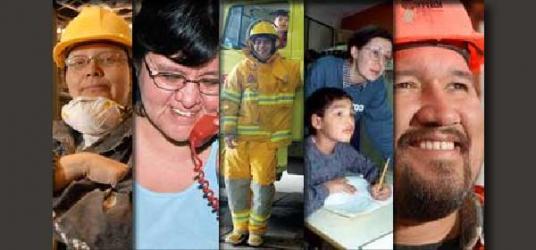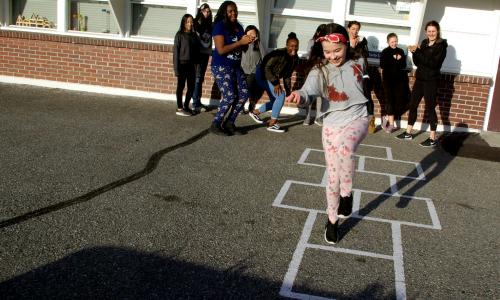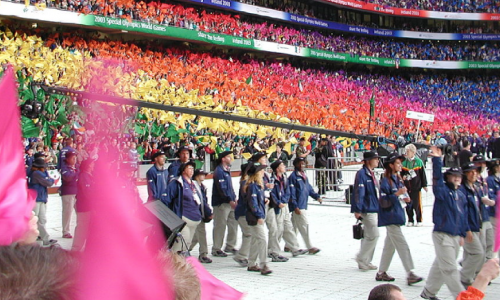
“The Aboriginal population in Canada is the fastest-growing segment of the Canadian population” (Fact Sheet). Employers across the board have recognized this and have taken the initiative to develop Aboriginal recruitment programs that give a leg up to people identifying as a member of at least one of Canada’s Aboriginal groups; North American Indian, Metis or Inuit.
Searching for a career can be an intimidating prospect, especially for those who may have experienced discrimination in the past. Looking for work requires self-confidence and faith in ones own abilities, as well as skin thick enough to handle possible rejection. It’s easy to allow old insecurities to get the best of us, and to wonder if we are even talented enough, or qualified enough for the positions to which we are applying. Add fear of discrimination onto the pile and this can be debilitating.
This is why educating oneself about Canada’s Employment Equity Act is so important.
“The purpose of this Act is to achieve equality in the workplace so that no person shall be denied employment opportunities or benefits for reasons unrelated to ability and, in the fulfilment of that goal, to correct the conditions of disadvantage in employment experienced by women, aboriginal peoples, persons with disabilities and members of visible minorities by giving effect to the principle that employment equity means more than treating persons in the same way but also requires special measures and the accommodation of differences” (Government of Canada)
The Purpose of the Act is to:
-
Achieve equality in the workplace by removing barriers to employment for the designated groups (women, Aboriginal peoples, persons with disabilities and members of visible minorities);
-
Correct the conditions of disadvantage in employment for the four designated groups; and
-
Give effect to the principle that employment equity means more than treating people in the same way; it also requires special measures and the accommodation of differences.
The Act applies to parts of the federal public service, some Crown corporations, and private sector employers with over 100 employees (labour.gc.ca)
The Globe and Mail published Canada’s Best Diversity Employers of 2013. There are 53 companies on that list from across Canada; however, that doesn’t even make a dent in the amount of employers that have adopted the concept of equity and diversity in the workplace. SFU’s Indigenous Online Learning Community has published eleven pieces about various Indigenous employers including; Fraser Health, Corrections Canada, Roundlake Treatment Centre, among many others.
As a person who identifies as Aboriginal, just knowing that a company practices a policy of inclusion in their hiring process can make the task of searching for work less daunting.
For example, one of the Indigenous employers posted on SFU’s Indigenous OLC is Scotiabank. Upon researching their hiring process I discovered that Scotiabank has developed various strategies to recruit Aboriginal employees.
From Scotiabank:
-
In 2009, we formed a three-‐year strategic partnership with the Aboriginal Human Resources Council (AHRC) as a way of deepening our commitment to the Aboriginal community and our Aboriginal employees. Through the partnership, we annually sponsor the Inclusion Works Career Fair and offer employees at all levels the opportunity to attend national AHRC events. This gives our non-‐Aboriginal employees an opportunity to better understand the challenges facing Aboriginal people in the workforce.
-
The AHRC supports the Scotiabank Aboriginal Network (one of our Employee Resource Groups) with customized training, resources, and articles for The Diversity and Inclusion Fountain (our internal website). The involvement of its Executive Champion – Anatol von
Hahn, Group Head, Canadian Banking plays a key role in fostering this tripartite relationship between the AHRC, Scotiabank, and our employees.
-
We partner with Nation Talk, a national communications hub available online and by fax service. The partnership enables our recruiters to post jobs directly on the website and gives us opportunities to highlight Scotiabank as an Employer of Choice.
-
In 2011, we participated in several other career events and job fairs to broaden our outreach to Aboriginal communities:
National Aboriginal Achievement Foundation Blueprint for the Future Aboriginal Youth Career Fair is a series of one-‐day career conferences that give Indigenous high school students valuable resources and information on career opportunities, while promoting education as being significant to labour market participation. At Blueprint for the Future, Indigenous high school students learn about a range of job options in a venue where they can meet and speak with some of Canada's top corporate and Indigenous business leaders.
The Future Is Yours career fair for Aboriginal youth is Saskatoon’s largest career fair targeted to Aboriginal youth and is 100% free for youth attendees. It has become a model for connecting with Aboriginal youth from all over Saskatchewan. It offers innovative ideas, leadership and career development workshops, team spirit and an open-‐minded attitude.
Aboriginal Women in Leadership Forum and Scholarship: Scotiabank was the presenting partner at the 2011 Forum, uniting 230 people from all backgrounds to celebrate the achievements of accomplished Aboriginal women, and presented two $1,000 Scotiabank Aboriginal Women Leaders Scholarship Awards to two post-‐ secondary students studying financial services.
We continue to focus on the advancement and education of Aboriginal youth:
-
We are proud supporters the 7th Generation Charity and the MBA bridging program at the Edward School of Business, Saskatoon, Saskatchewan
-
Partnering with the Martin Aboriginal Education Initiative (MAEI), we launched mentorship programs in Winnipeg and Edmonton through which secondary school students are mentored by Scotiabankers.
-
New in 2011: In October 2011, MAEI and Scotiabank partnered once again, this time to launch a first-‐of-‐its-‐kind on-‐reserve youth entrepreneurship program at Oscar Lathlin Collegiate at Opaskwayak Cree Nation. The program encourages students to stay in school where they can develop the attitudes, knowledge, and skills necessary to achieve success in secondary school, postsecondary education or training, the workplace, and daily life. Students are given entrepreneurial experience and the opportunity for business ownership.
This is just an example of one company’s inclusion efforts and there are many more out there. For those of us seeking not only a career, but also a career with a company that honours our heritage, looking for employers that respect employment equity and take strides toward inclusion may be the best way to go. Remember, employers may be performing the interview, but we are also interviewing them in order to discover if they are the right fit for our lives and us. Just knowing we have choices is a pretty good way to start.













